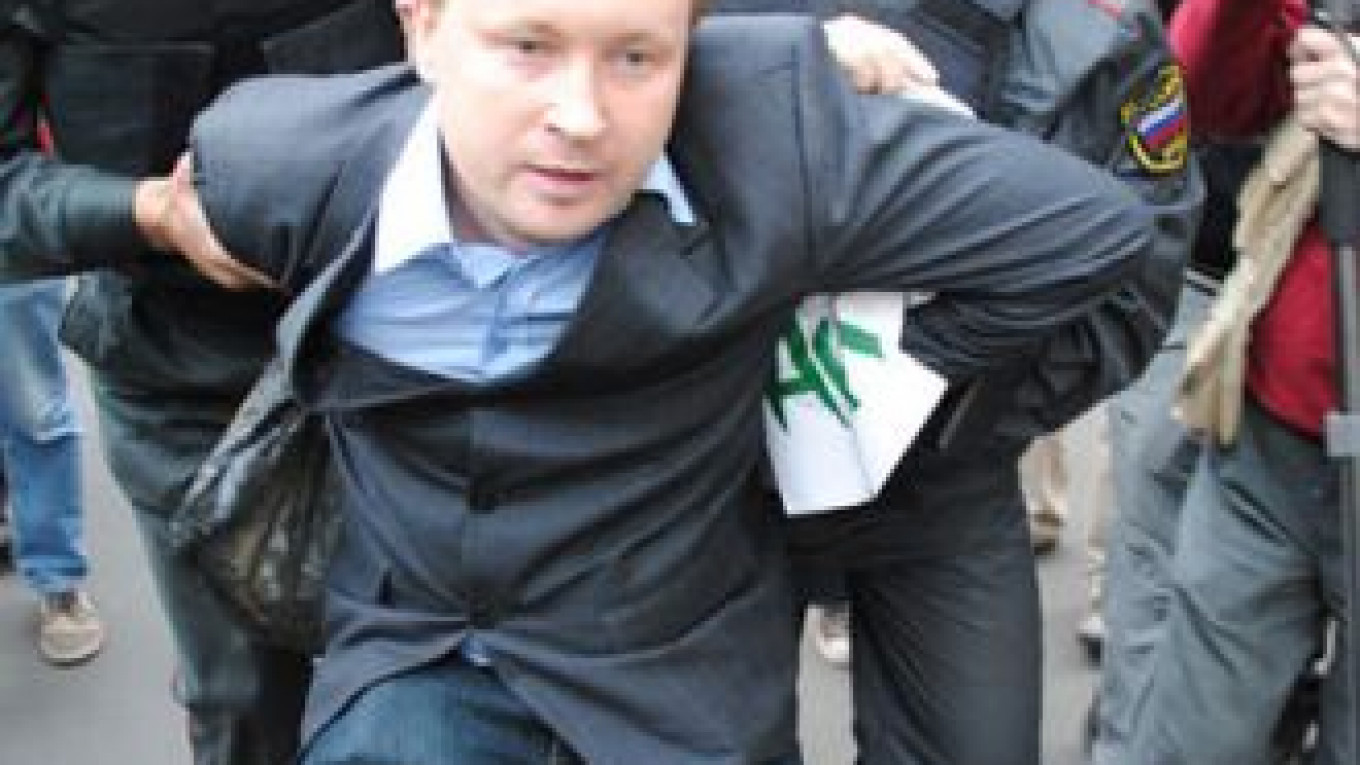Investigators on Tuesday conducted an early-morning search of the apartment of prominent gay-rights activist Nikolai Alexeyev, ostensibly in connection with a slander case against him.
Alexeyev, who has been one of the most vocal critics within the LGBT community of a new law banning “propaganda” of gay relationships among minors, said on Twitter that people in plain clothes tried to break in to his Moscow apartment at 7 a.m.
“It's a downright disgrace — they've woken up the whole building," Alexeyev told Interfax.
The Investigative Committee later confirmed to Interfax that they had planned a court-sanctioned search of Alexeyev's apartment as part of the slander inquiry, which was prompted by a complaint from two United Russia lawmakers. It was unclear what exactly investigators were looking for at the activist's home.
State Duma Deputies Yelena Mizulina, head of the Committee on Family, Women and Children, and Yelena Batalina told prosecutors in July that Alexeyev posted rude comments about them on Twitter related to the gay propaganda law, which they were leading advocates of.
The law stipulates fines for promoting pro-gay attitudes among minors and has been a source of outrage for rights groups since being signed into law in June.
"If a criminal case is launched, we will ask to penalize [Alexeyev] with community service in places where he will be unable to carry out his gay propaganda — for example, in a coroner's van," Mizulina told Izvestia after requesting the investigation.
Alexeyev posted photographs on his Facebook page Tuesday of his apartment following the search, showing plastic bags, blankets and papers strewn over the floor. Another image showed a hole at the base of the bathroom wall with a piece of tile next to it, which Alexeyev said investigators broke.
“The search is over. They turned the apartment upside down,” he wrote in a message accompanying the photographs.
A Message from The Moscow Times:
Dear readers,
We are facing unprecedented challenges. Russia's Prosecutor General's Office has designated The Moscow Times as an "undesirable" organization, criminalizing our work and putting our staff at risk of prosecution. This follows our earlier unjust labeling as a "foreign agent."
These actions are direct attempts to silence independent journalism in Russia. The authorities claim our work "discredits the decisions of the Russian leadership." We see things differently: we strive to provide accurate, unbiased reporting on Russia.
We, the journalists of The Moscow Times, refuse to be silenced. But to continue our work, we need your help.
Your support, no matter how small, makes a world of difference. If you can, please support us monthly starting from just $2. It's quick to set up, and every contribution makes a significant impact.
By supporting The Moscow Times, you're defending open, independent journalism in the face of repression. Thank you for standing with us.
Remind me later.






